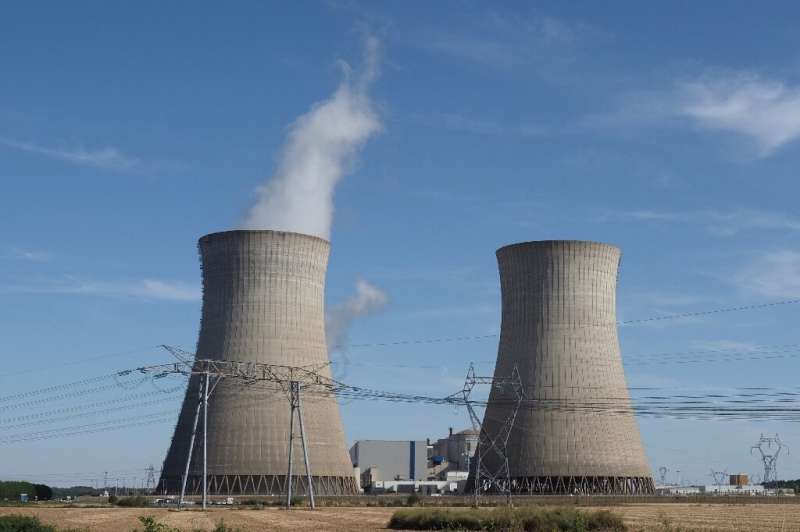A nuclear power plant in Dampierre-en-Burly in central France, one of 19 nuclear plants in the country, providing the bulk of its electricity needs.
France will soon start distributing radioactivity-blocking iodine pills to an additional 2.2 million people living near the country's 19 nuclear power plants, to be taken in case of accidental radiation leaks, regulators said Tuesday.
The ASN nuclear safety authority had announced in June an extension of the safety radius to 20 kilometres (12 miles) of each plant, up from 10 kilometres set in 2016, when some 375,000 households were prescribed the pills.
The watchdog said Tuesday that affected residents will receive a letter in the coming days with a voucher to collect stable iodine tablets from pharmacies, as well as information on what to do in case of a nuclear accident.
"If radioactive iodine is released into the environment, taking stable iodine is one of the most effective ways of protecting the thyroid," the ASN said in a statement.
The thyroid, which produces hormones regulating the body's metabolism, is particularly at risk from cancer caused by exposure to radioactive iodine released in nuclear accidents.
France gets the bulk of its electricity from nuclear generators. It is the world's most nuclear-dependent country, though it has pledged to cut its reliance on nuclear power, largely by shutting down its oldest reactors.
In 2014, flooding at its oldest plant, in Fessenheim near the German and Swiss borders, forced an emergency reactor shutdown. Anti-nuclear activists have long called for the shuttering of Fessenheim, which has been in operation since 1977.
The first new-generation nuclear power plant in the country's north, originally set to go online in 2012, has been hit by huge cost overruns and manufacturing problems, and is not expected to be ready until 2022.
Also targeted in the expanded campaign will be schools, businesses and shops within the enlarged radius, the ASN said.
© 2019 AFP






















